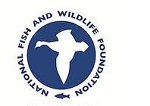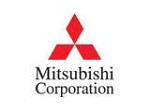Ocean Park Conservation Foundation

Grants for wildlife conservation in China and other Asian countries
Principal Office: China (Hong Kong)
The Ocean Park Conservation Foundation of Hong Kong (OPCFHK) aims to promote effective conservation of Asian wildlife species and their habitats.
The Foundation makes grants to protect threatened animal species in China and other Asian countries.
Grant Programs for Agriculture, Energy, Environment, Natural Resources
Grants for wildlife conservation in Asia. Grants are for conservation research and management, and for community education and capacity building.
The Foundation makes grants for the conservation of a wide variety of species. Giant pandas and Chinese white dolphins are a primary focus. In addition, the Foundation supports conservation of other threatened cetaceans, amphibians, reptiles, birds, fishes, corals, invertebrates, and other marine and terrestrial mammals. The Foundation states a special interest to understand the effects of climate change on threatened wildlife and their habitats.
Eligibility for grants is open to qualified wildlife researchers without restrictions by nationality or country of residence.
About programs (supported species)
APPLICATION: The Foundation’s website describes the selection criteria, amounts and terms of funding, funding restrictions, and the grant application process.
Applications are submitted in Chinese or English. Applicants identify the qualifications of the principal investigators and their affiliate institutions; identify other project participants; provide a project timeline; present a project summary; present and explain a project budget; and list other funding support.
Grants are made in annual cycles. The Foundation specifies the submission deadline.
About how to apply
Geographical Distribution of Grant Activities in Developing Countries
The Foundation is not specific regarding how it defines Asia. Grants focus on wildlife conservation in China and in other countries of the three regions identified below.
Southeast Asia and Pacific Islands
East Asia
South AsiaThe Foundation’s website is available in Chinese and English.
The Foundation supports Hong Kong university students to participate in wildlife field projects in other Asian countries.
The Foundation posts annual reports.
Contact Us offers complete information.
January 2021


